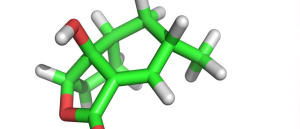
研究小组发现蛋白STAT3在干细胞样细胞中有活性。(图)
由于前列腺癌已对激素治疗产生抗药性,并对放射治疗或化疗没反应,因此我们有必要开发新型前列腺癌治疗方法。通过攻击前列腺癌干细胞样的细胞,隆德大学的研究人员正在开展一项开发新治疗方案的研究项目。
一项跨学科研究项目正在两个小组间进行。研究人员包括Malmö市Skane大学医院医学系泌尿癌症研究部门的高级研究员Rebecka Hellsten和教授Anders Bjartell、隆德大学有机化学部门教授Olov Sterner和助理教授Martin Johansson。相关研究结果发表在科学在线杂志《公共科学图书馆—综合》(PLoS ONE)上。
Anders Bjartell指出,人们认为前列腺肿瘤中大约只有0.1%的肿瘤干细胞。但是,如果不把这种肿瘤细胞群彻底根除,以后会存在肿瘤生长失去控制的风险。肿瘤干细胞通常对激素治疗和化疗无反应,因此,开发对所有类型肿瘤细胞进行直接治疗的方法就显得至关重要。
在了解了前列腺癌的肿瘤生物学后,这个研究小组发现蛋白STAT3在干细胞样细胞中有活性。他们之前的研究已证实,天然化合物肉盘菌内酯(galiellalactone )可调控STAT3,并对前列腺癌的生长有抑制作用。
通过以肉盘菌内酯为模型开发新的特异性STAT3-抑制剂,研究人员希望开展靶向治疗,攻击前列腺癌中干细胞样的肿瘤细胞,以防止其生长和蔓延。
生物探索推荐英文原文:
Prostate cancer that has become resistant to hormone treatment and that does not respond to radiation or chemotherapy requires new methods of treatment. By attacking stem cell-like cells in prostate cancer, researchers at Lund University are working on a project to develop a new treatment option.
An interdisciplinary project is underway between two research groups, in which senior researcher Rebecka Hellsten and Professor Anders Bjartell at the Faculty of Medicine's division for Urological Cancer Research, Skåne University Hospital in Malmö, and Professor Olov Sterner and Assistant Professor Martin Johansson at the Lund University division of Organic Chemistry recently published their latest research findings in the scientific online journal PLoS ONE.
"Prostatic tumours are thought to consist only of about 0.1 per cent cancer stem cells, but if you are not successful in eradicating that tumour cell population, there is a risk of subsequent uncontrolled growth of the tumour. The cancer stem cells are often unresponsive to both hormonal treatment and to chemotherapy, so it is essential to develop a direct treatment towards all types of cancer cells," says Anders Bjartell.
Exploring the tumour biology of prostate cancer, the research group have now observed that the protein STAT3 is active in the stem cell-like cells. In their previous studies, they have proven that the natural compound galiellalactone affects STAT3 and has inhibitory effects on the growth of prostate cancer.
Through the development of new specific STAT3-inhibitors with galiellalactone as a model, the researchers hope to develop targeted therapies that attack the stem cell-like cancer cells in prostate cancer and prevent the tumour from growing and spreading.







